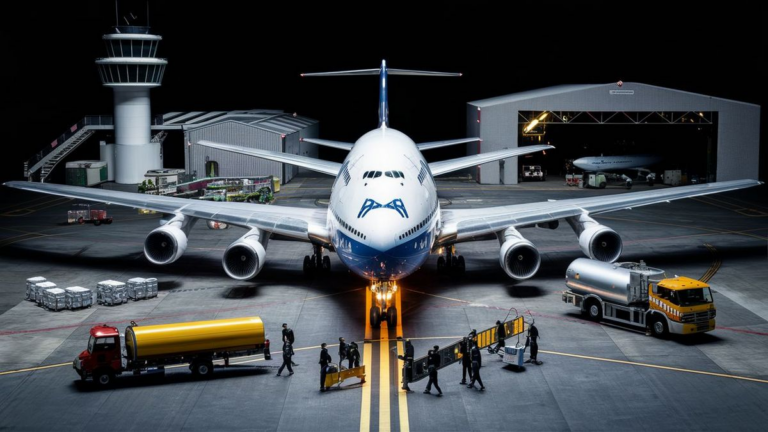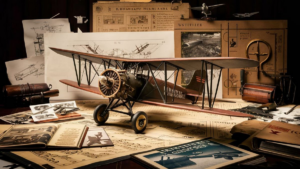Boeing, a titan in the aviation industry, has a storied history marked by iconic aircraft. Among these is the Boeing 747, often referred to as the “Queen of the Skies.” This majestic aircraft has long captured the imagination of aviation enthusiasts and travelers alike, with its distinctive humpbacked design and unparalleled capabilities. However, the question arises: does Boeing still produce this legendary aircraft?
The Legacy of the Boeing 747
Before delving into the current status of production, let’s take a moment to appreciate the legacy of the Boeing 747. Introduced in 1970, the 747 revolutionized air travel, offering unprecedented capacity and range. Its introduction marked a new era of long-haul flights and opened up opportunities for global travel on a scale never seen before.
Evolution and Adaptation
Over the decades, Boeing has continued to innovate and refine the 747, introducing newer variants such as the 747-400 and the 747-8. These aircraft featured advancements in technology, efficiency, and passenger comfort, ensuring that the 747 remained competitive in a rapidly evolving aviation landscape.
Current Production Status
While the Boeing 747 has played a significant role in shaping the aviation industry, its production has seen a decline in recent years. As of the latest updates, Boeing has scaled back production of the 747 due to shifting market demands and a focus on more fuel-efficient twin-engine aircraft.
Despite this, Boeing still technically produces the 747, albeit at a much slower pace than in its heyday. The company continues to fulfill orders for the 747-8, the latest iteration of the aircraft, albeit primarily for cargo and freighter operations rather than passenger flights.
Market Trends and Future Outlook
The decrease in demand for large four-engine aircraft like the 747 can be attributed to several factors, including rising fuel costs, advancements in twin-engine technology, and changing preferences among airlines for smaller, more fuel-efficient planes.
Looking ahead, while the era of large-scale passenger operations with the 747 may be winding down, the aircraft’s legacy lives on in the realm of cargo transportation. The 747-8 Freighter, with its unparalleled capacity and range, continues to serve as a vital asset for global logistics and freight operations.
In conclusion, while Boeing’s production of the 747 has slowed in response to shifting market dynamics, the aircraft remains an enduring symbol of aviation excellence. Its contributions to the industry are undeniable, and though its role may evolve, the legacy of the Boeing 747 will continue to soar for years to come.
Environmental Impact and Sustainability
One aspect that modern aviation must increasingly consider is the environmental impact of aircraft. While the Boeing 747 has a rich history and a legacy of innovation, its fuel consumption and emissions have raised concerns in an era where sustainability is paramount.
Boeing, like other manufacturers, has been investing in research and development to create more fuel-efficient aircraft designs. While the 747-8 boasts improved fuel efficiency compared to its predecessors, it still falls short of the standards set by newer, more eco-friendly models.
However, Boeing has initiatives in place to mitigate the environmental impact of its aircraft, including exploring alternative fuels and implementing more sustainable manufacturing practices.
Frequently Asked Questions
Here are some commonly asked questions regarding the Boeing 747:
| Question | Answer |
|---|---|
| Is Boeing still producing the 747 for passenger flights? | No, Boeing’s production of the 747 for passenger flights has significantly decreased due to changing market demands. |
| What is the current focus of Boeing’s 747 production? | Boeing primarily produces the 747-8 for cargo and freighter operations. |
| What factors have contributed to the decline in demand for the Boeing 747? | Rising fuel costs, advancements in twin-engine technology, and changing airline preferences for smaller, more fuel-efficient aircraft have all played a role. |
| Is the Boeing 747 still relevant in today’s aviation industry? | While its role in passenger transportation has diminished, the 747 remains vital in cargo transportation, particularly with the 747-8 Freighter model. |
Technological Advancements and Innovation
Boeing continues to push the boundaries of aviation technology, with ongoing efforts to develop next-generation aircraft that offer improved efficiency, performance, and sustainability. While the 747 has a storied past, Boeing’s focus is now on developing innovative solutions that meet the evolving needs of the aviation industry.
See also:






